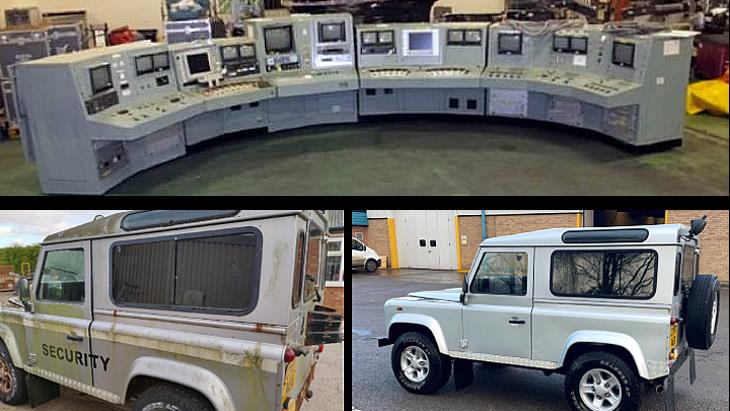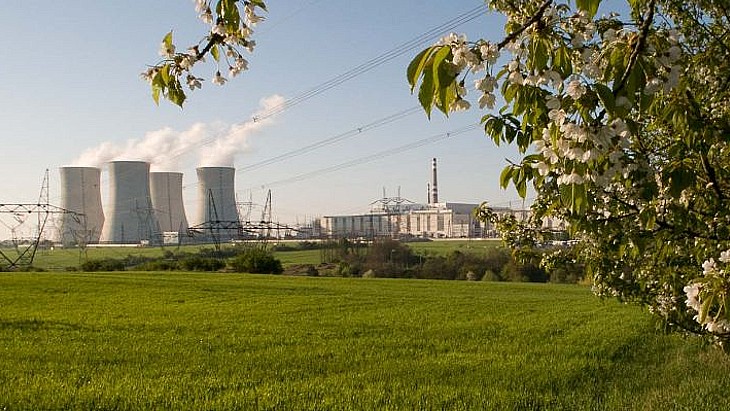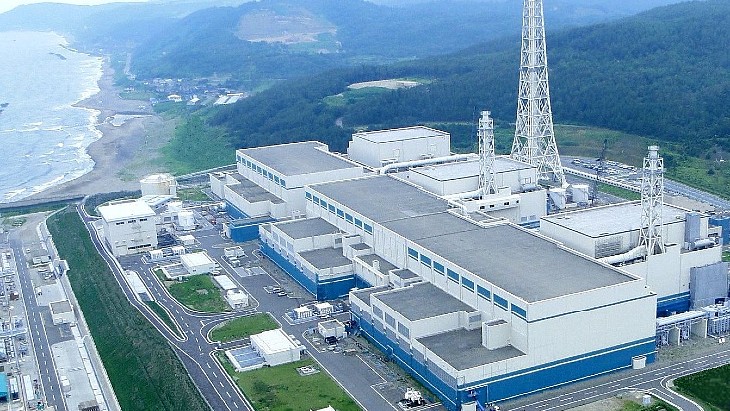Ramco, which works with the UK’s Ministry of Defence, has teamed up with Magnox and the Nuclear Decommissioning Authority to sell off surplus assets from nuclear power plants - large-scale industrial sites which are almost like small villages in their own right - as they are decommissioned.
The sort of items put up for auction include general industrial kit - tables and chairs and catering equipment, plus forklift trucks - but on a very large scale. For instance, Ramco’s Head of Operations Adrian Foreman said they auctioned 60 lorry loads of equipment from the Bradwell nuclear site in the UK.
While the issues surrounding radioactive waste is generally the focus of decommissioning efforts, Ramco has found a market and value for things such as 120 tonnes of scaffolding at one plant - as Foreman says, in size the "reactors are more like cathedrals and so they needed an awful lot of scaffolding".
Other items include flood defence barriers and pumps and generators, as well as ageing Land Rover Defenders which were once used to tow salt spreaders to keep the site safe during winter weather.
Foreman himself bought and did up an old minibus from one nuclear plant, turning it into a camper van, while a former ambulance has been reconditioned and is back in operation, travelling to Ukraine to help the medics there.
While most of those items are practical ones for general industrial use, there has also been a control panel sold in the past year - it was for the CCTV control desk - where the chance to own a bit of a nuclear power plant gained a lot of attention from the media and auction audiences.
Foreman says Ramco, which began life in 1996, has seen its mission being matched by the wider recognition of the importance of sustainability, as well as the financial returns: "Our aim is to prevent stuff going down the waste route and to provide a return for our clients. It seems like a no-brainer to us - you have got all this stuff sitting there which people might not have thought about, but which have the potential for a long future working life. In the past, a lot of this stuff would just get thrown away and sent to scrap. We take away the stress for business and remove these items, adding value where possible and finding them a new home."
The company does not have anything to do, so far anyway, with the actual reactors. Beyond any safety issues "even we would struggle to find a home for a bespoke piece of the reactor that was probably designed in the 1950s or 1960s" - but as sites are decommissioned and the area of the plant shrinks down they help remove assets on the site. At the moment supply chain difficulties, for example, have meant that some of the catering equipment such as combi-ovens from no-long-needed canteens are proving popular, Foreman says.
But what about safety issues? Do people really want to own a bit of a nuclear power plant?
All the material that is provided to them for resale or checking, first has to go through the testing by the nuclear site staff "and they are very, very thorough" says Foreman, whose company also has radiation testing expertise and licences, which has to be used for things like compasses and other equipment from any industrial source.
"There are some people who have the wrong idea about safety issues - from watching things like Chernobyl - but there are a lot of people, like me, that are interested in the science and the nuclear industry and can see how this is a good thing and adds to sustainability," said Foreman.
With the forthcoming increase in decommissioning activity in the UK, Ramco is hoping to be able to give a new life to much more of the less well known parts of these giant power plants.





_53514_33880.jpg)


_91467.jpg)





